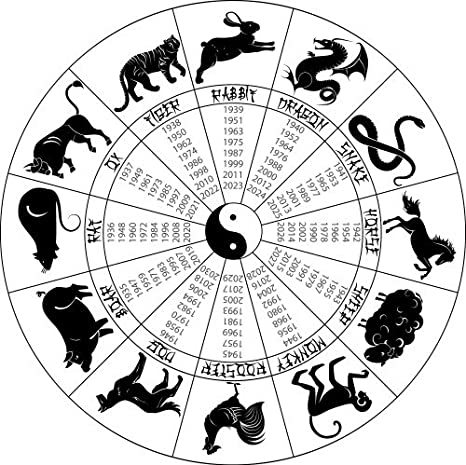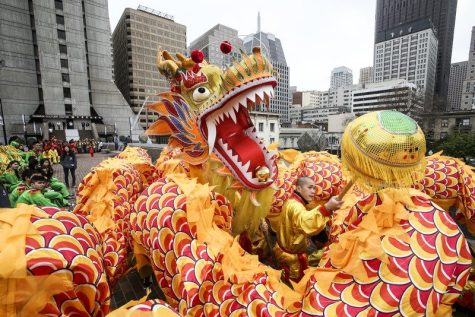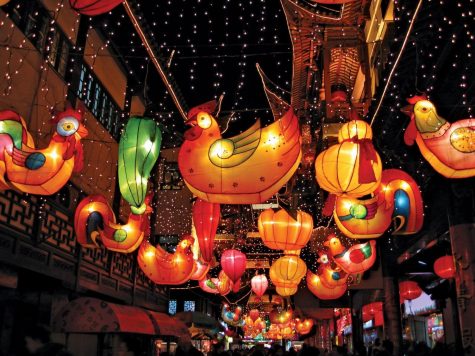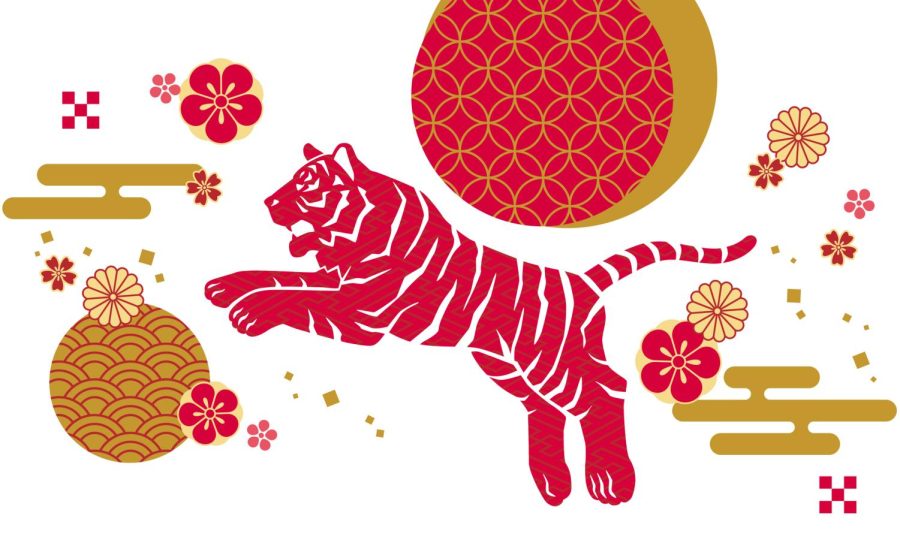The 2022 Chinese New Year
Xīnnián hǎo
While many have already completed their New Year celebrations, nearly two billion people are just now preparing for their two week-long celebration. The Chinese New Year, which is also known as the Lunar New Year and the Spring Festival, will officially begin February 1st.
Why does the Chinese New Year not begin on January 1st?
Celebrated mainly all across China, Korea, the Philippines, Thailand, Singapore, and other Asian countries, the Chinese New Year celebrations are determined by the Chinese calendar, which is closely linked to the lunar cycles. This lunar calendar is said to be dated back to the 21st century BCE when the Xia Dynasty began ruling, thus resulting in the lunar calendar to also be referred to as the Xia calendar.
In terms of determining the official start of a new year, the Chinese calendar observes the lunar month with the Winter Solstice as the 11th month of the year, leading the Chinese New Year to take place on the second new moon following the Winter Solstice. Although the exact date of the Chinese New Year varies year to year, it will always land on a date between January 21st and February 20th. In fact, according to the Chinese calendar, 2023’s celebrations will begin on January 22nd.
The Chinese Zodiac
Along with the observance of the lunar calendar, the Chinese calendar also assigns an animal to each year in a 12-year cycle, which includes: tiger, rabbit, dragon, rat, snake, rooster, ox, horse, dog, dragon, monkey, and pig. Starting February 1st, 2022, the Year of the Tiger will officially have begun!
Dating back to the Qin Dynasty, one variation of the legend goes as follows: On his birthday, the Jade Emperor challenged the kingdom’s animals to what is known as the “Great Race,” a race that would determine a means of time measurement. There could only be 12 winners, and those who successfully crossed a rolling river and made it to the finish line would have a Chinese Zodiac in their name; any animal who failed to be one of the first 12 animals to finish, such as the cat, would be excluded from the Chinese zodiac. The order of the lunar calendar reflects the standings of the race with the rat starting of the year and the pig ending it. After the pig, it starts back over, which is why the Chinese zodiac is often represented in the shape of a circle.
Those who are born in the (lunar) Year of the Tiger (2022, 2010, 1998, 1986, 1974, 1962, etc.) are often said to be confident, persistent, and trustworthy. However, there is no good without the bad, and according to the Chinese zodiac, those born in the Year of the Tiger are also self-absorbed, stubborn, and aggressive. Some celebrities that were born during a Year of the Tiger include: Usain Bolt, Leonardo DiCaprio, Tom Cruise, Lady Gaga, Drake, and Queen Elizabeth II.
Celebrating the New Year
Similar to the Western traditions of starting anew that we practice in the United States, with the closing of the year, many who celebrate the Chinese New Year aim to ring in the next year with a blank slate; this means cleaning the house to perfection, paying off old debts, and setting aside time to do some introspective reflection.

A common tradition recognized in Taoism, Chinese folk religion, and several other Asian religions is the yearly reporting from the Kitchen God (he may also be referred to as the Stove God, Zao Jun, Zao Shen, Zao kimjah, Cokimjah, and Zhang Lang). It is said that on the 23rd day of the 12th lunar month, just before the start of the coming year, the Kitchen God travels around to all the houses and informs the Jade Emperor, the ruler of Heaven, of everyone’s yearly activities. The Jade Emperor then either rewards or reprimands the families based on their reports. In order to ensure that they receive a favorable evaluation, many participate in rituals that include displaying a picture of the Kitchen God in their residence year-round, offering candies and sweets to the Kitchen God, and then burning the photograph so that he could officially be on his journey to the Jade Emperor, returning again on the first day of the New Year celebration.

Depending on the country, and even the household, Chinese New Year traditions can vary greatly. Here in the United States, cities with large Asian populations, such as the San Francisco Bay Area, may hold more authentic, public celebrations similar to those in the Asian countries of origin; these celebrations usually include street parades, fireworks, and performances.
Many families and local communities have their own personal traditions as well, but for the most part, many who celebrate the holiday devote a lot of time towards rekindling with friends and family. The Woks of Life has composed a list of common “Dos and Don’ts” for the New Year:
You may have heard of the tradition of giving out red envelopes, or 紅包 (hóngbāo), for the Chinese New Year; these gifts are seen as a symbol for good wishes and luck for the coming year. Filled with differing amounts of money (depending on the recipient), the hóngbāo is given to friends and relatives. The number four is to never be included in the monetary amount inside, so one can not give amounts such as 45, 140, or 400 to someone else because the Chinese pronunciation of “four” sounds too similar to their word for “death.” Additionally, around the time of the New Year, banks often have long lines full of people trying to exchange crumpled, torn bills for pristine ones, for only clean, crisp money is allowed in a gifted hóngbāo.
The Lantern Festival

The 15th and final day of the celebrations is known as the Lantern Festival, which comes from the belief that lanterns were used as a lightsource to help people see the gods; families spend time constructing and decorating lanterns so that they can be lit and released into the sky. By the time of the Lantern Festival, many businesses may have already reopened and some schools may be back in session; however, some like to celebrate the new year all the way until the end, such as by inviting over guests and hosting dinners. And some even participate in traditional activities, like moon gazing, riddles, lion dances, and eating rice balls.
No matter what you may do to celebrate the New Year, I wish you a prosperous and joyful one!
新年快乐! Xing Nian Kuai Le!
恭禧发财! Gong Xi Fa Cai!
Happy New Year!
** While I am not an observer of this holiday and culture, I do find the topic to be fascinating. That being said, I am no expert on the Chinese New Year. If you are wishing to learn more about the Chinese New Year, I have listed below numerous resources that have aided me in my education on the subject:
- Columbia University’s Asia for Educators: The Lunar New Year: Rituals and Legends
- The University of Washington: The Chinese Zodiac: Mythology
- Academic Kids: Jade Emperor
- The Woks of Life: Chinese New Year Traditions
- The Woks of Life: 23 Chinese New Year Greetings (Mandarin & Cantonese)
- Google Arts & Culture: 8 Things You Should Know About the Lucky Red Envelope








